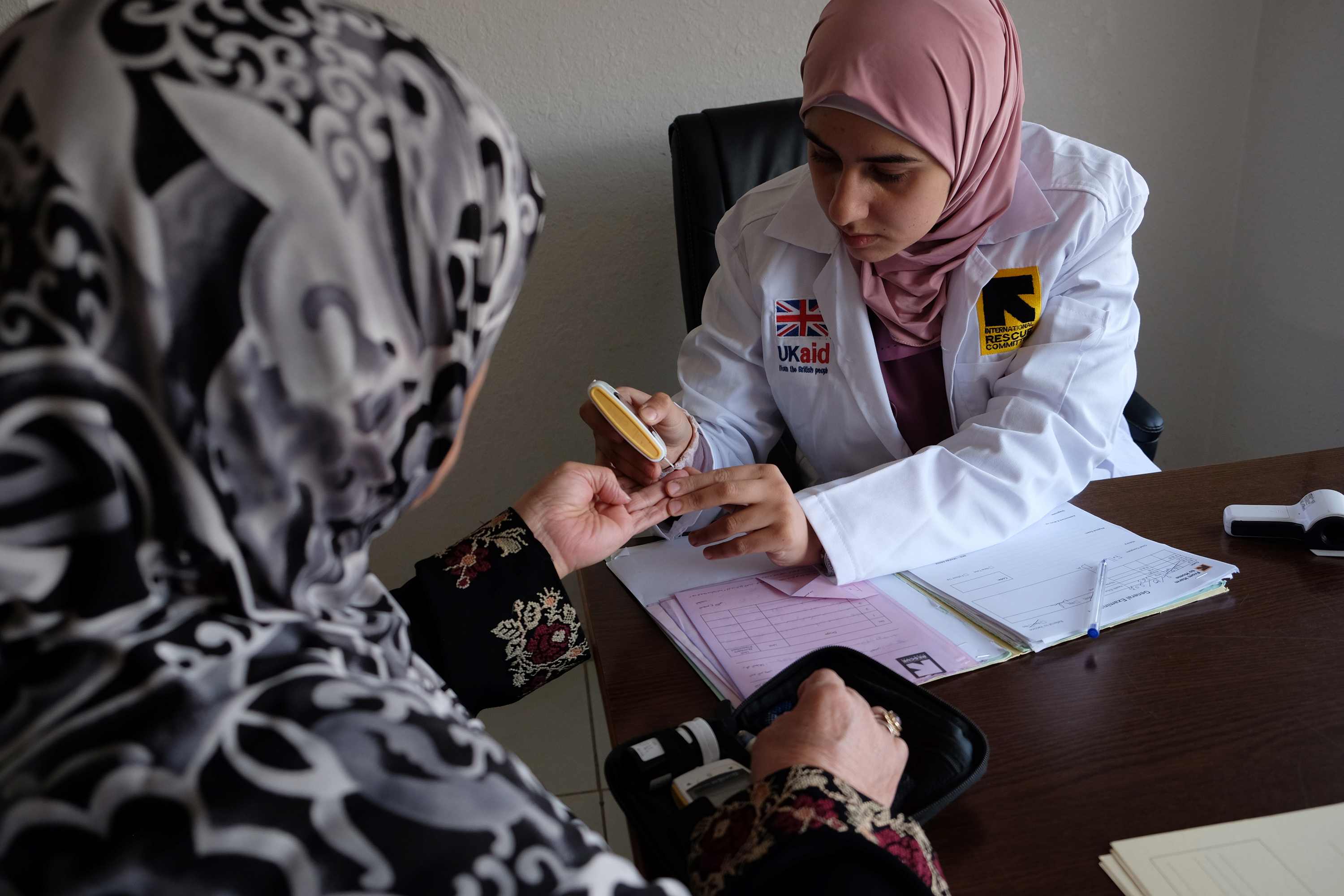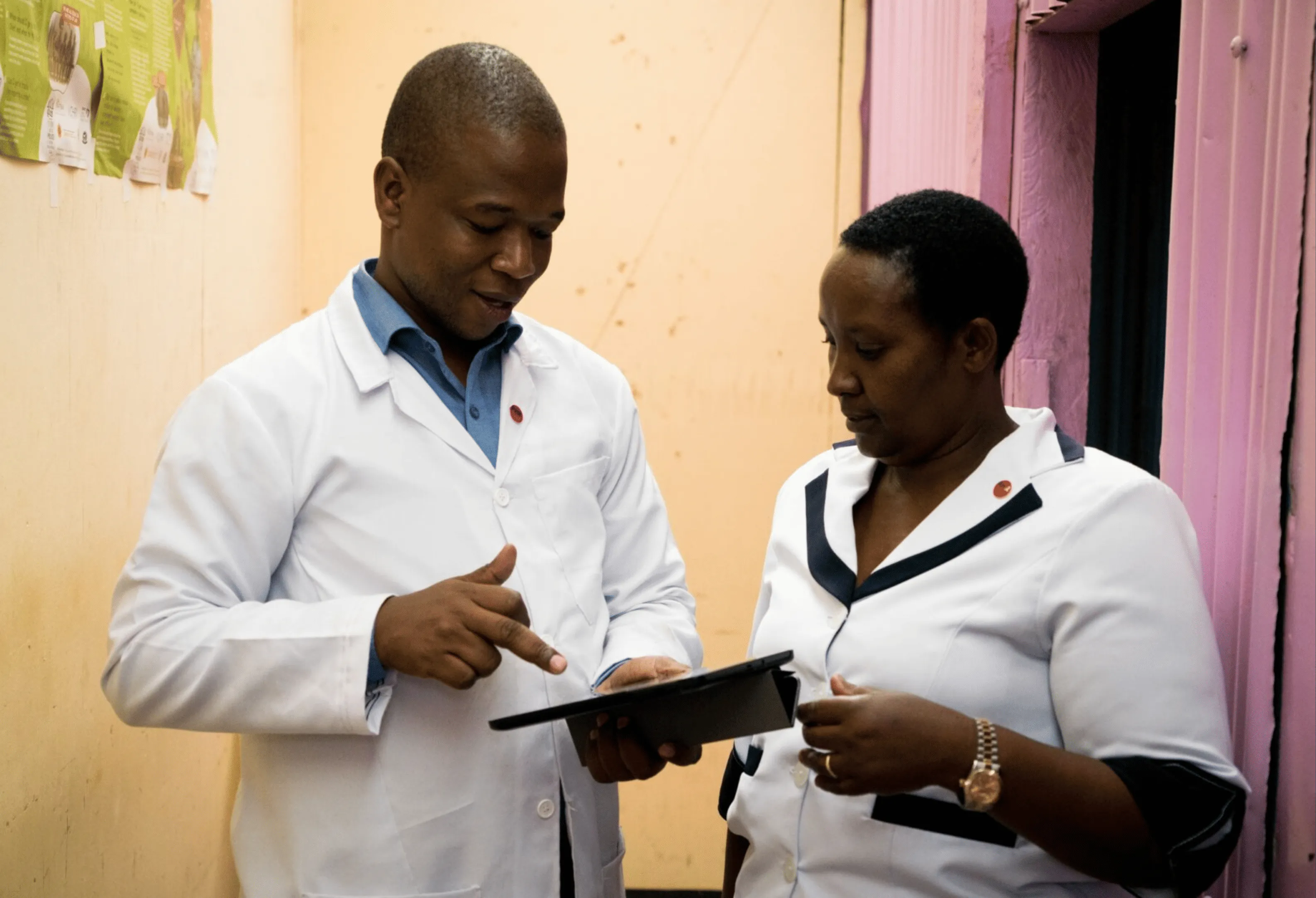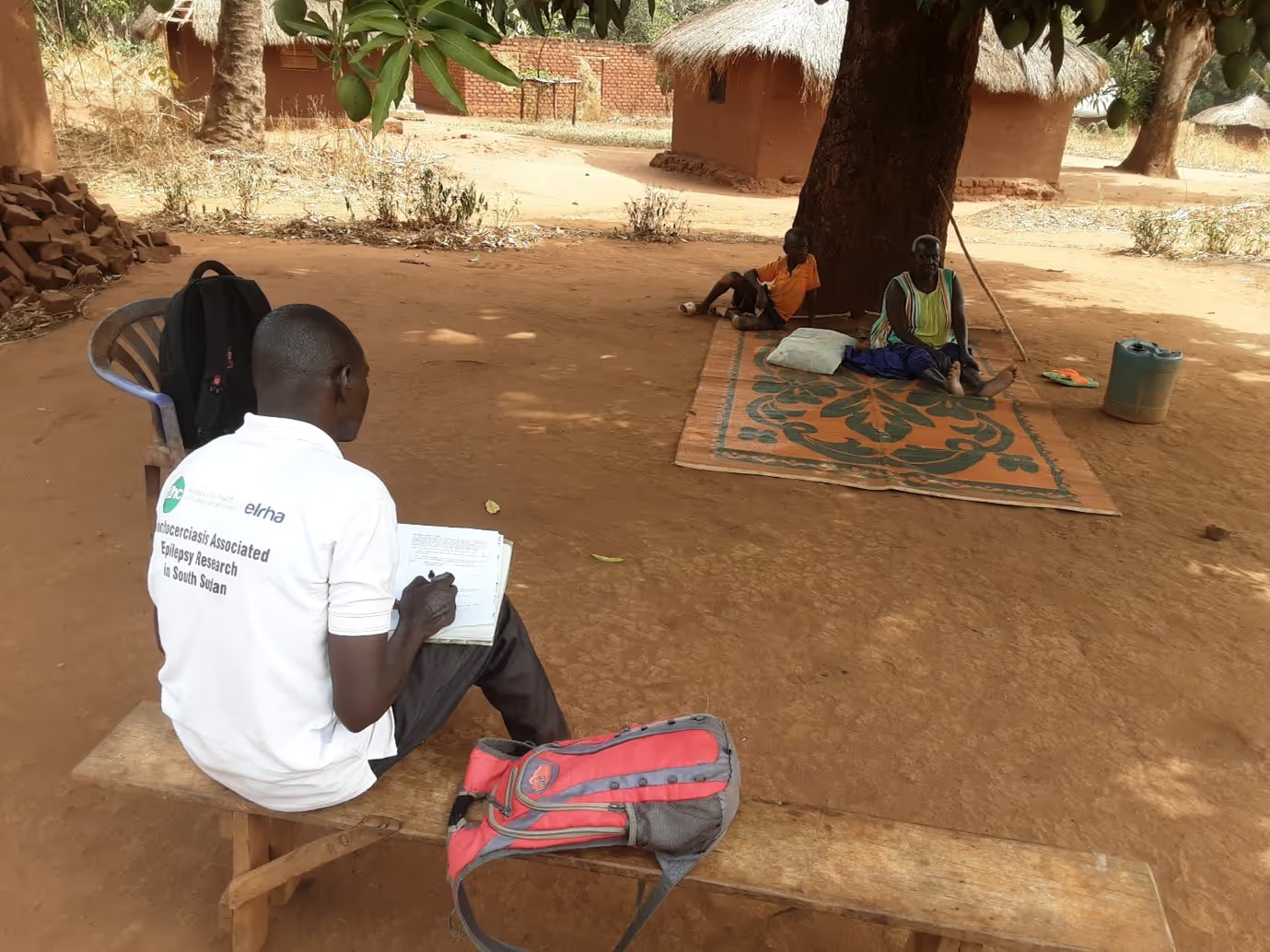Ideas on Dying in Honor in Guinea

The study “Aid When there is ‘Nothing Left to Offer’” included a case study focusing on palliative care in Ebola Treatment Centres (ETCs) in Guinea during the 2014-16 outbreak. Its aim was to capture the viewpoints of health workers, public policy makers and community members to better support end-of-life care. Semi-structured interviews explored the needs, expectations, perceptions and challenges associated with end-of-life care in the country during the Ebola crisis in the ETC.
As the Guinean Research Coordinator for the Humanitarian Health Ethics Research Group, I conducted interviews with participants in my country about their experiences with end of life and palliative care during the outbreak. Despite the intensity of the situation, the idea of dying honorably was repeatedly stressed as important.
This blog describes Guineans’ perceptions of what they call “to die in honor”, or what we have come to understand as care for dying patients, and the symbols and acts or rites devoted to this event.
Background:
The Republic of Guinea is a secular country. While this secularism is guaranteed by the Constitution it is inspired by the plurality of and respect for traditional beliefs.
The diversity of beliefs and the fact that only 19.1% of the population have reached secondary or high school (National Statistical Institute: Demographic and Health Survey) or that only 1.2 % can read a full sentence (National Statistical Institute: Demographic and Health Survey), influences Guinean people’s perceptions of disease, types and places of care, personality of caregivers, and places and circumstances of death.
Guinean history, economic conditions and past epidemics influence in one way or another people’s perceptions of the idea of dying in honor (Cheikh Ibrahima Niang. EBOLA : UNE ÉPIDÉMIE POSTCOLONIALE 2014/4 Hiver) The representation and symbols of ‘honor' are also perceived differently as a result of personal pre-existing economic conditions, the individuals’ value placed on funeral ceremonies, or the significance afforded to visits by close family members (S. BLANCHY, M. CHEIKH, al, .Thérapies traditionnelles aux Comores Cahier des sciences humaines p.56 1993)
Despite diversities in perceptions, when compared to patient medical care, more than anything, the psycho-social support provided by family members to the dying patient is seen as the most ‘honourable’ component of dying and is considered more important even than any financial capacity to buy medicines.
Perceptions from participants involved in the study exploring palliative care in Guinean ETCs
Overwhelmed with patients in the ETCs, little time was dedicated to the care of patients, many of whom were dying. Normally there was no more than 45 minutes spent in the patient unit at any one time. On top of that, many national staff were not comfortable with administering morphine for pain relief. There was also much distrust of the care provided in the ETCs because of various rumors. In this context, respecting the concept of “dying in honor” necessarily took new forms. Consistently, however, was the view that personal support, usually from family members, was critically important.
These statements from former ETC patients provide remarkable evidence of the significance of family to the idea of what it means to die in honor for Guineans. According to participants:
Participant 2: Me, I think we must be surrounded by people we love who provide moral support, and that you feel loved, before God takes away what he entrusted to you…The family is also part of the people providing treatment. The family. Why? It's so you don't feel abandoned. The Doctor. Why? Because, a patient, even if a patient has to die, it’s said that the doctor is the remedy.
Participant 8: To bless the dying. This is what is needed so that his soul leaves him peacefully.
Participant 14: Those who come will take care of you. They will clean and will do the ablutions before touching the body...You are going to die with almost every family member, that is, you are assisted—morally supported—on all levels. So, on the social level, everything is here.
Breathing of one’s last breath under the moral support of family members and/or health personnel, the blessings (“Yasin ou kalmachahad”), as well as the conversations provided by parents before and after death is essential elements of dying in honor in Guinea.
In the end, despite diversity of views and opinions among Guineans, there are social norms that the vast majority of Guineans observe. Patients in the hospital may be visited less frequently, but from the moment of death, funeral ceremonies are made by a great numbers of family members from all over the world: oxen are slayed, bags of rice arrive for a feast. It might have taken a quarter of these investments to buy a prescription for the patient, this economic outlay symbolizes that death is not accepted easily; questions about how or why it happened are asked as sign of respect and devotion. Showing moral support through family interaction before a person’s death, and through family (re)connection after death, all contribute to supporting the idea of ‘dying in honor’ in Guinea.
By Sekou Kouyate, Masters Student in “Global Vaccine Logic’’The study “Aid When there is ‘Nothing Left to Offer’” included a case study focusing on palliative care in Ebola Treatment Centres (ETCs) in Guinea during the 2014-16 outbreak. Its aim was to capture the viewpoints of health workers, public policy makers and community members to better support end-of-life care. Semi-structured interviews explored the needs, expectations, perceptions and challenges associated with end-of-life care in the country during the Ebola crisis in the ETC.
As the Guinean Research Coordinator for the Humanitarian Health Ethics Research Group, I conducted interviews with participants in my country about their experiences with end of life and palliative care during the outbreak. Despite the intensity of the situation, the idea of dying honorably was repeatedly stressed as important.
This blog describes Guineans’ perceptions of what they call “to die in honor”, or what we have come to understand as care for dying patients, and the symbols and acts or rites devoted to this event.
Background:
The Republic of Guinea is a secular country. While this secularism is guaranteed by the Constitution it is inspired by the plurality of and respect for traditional beliefs.
The diversity of beliefs and the fact that only 19.1% of the population have reached secondary or high school (National Statistical Institute: Demographic and Health Survey) or that only 1.2 % can read a full sentence (National Statistical Institute: Demographic and Health Survey), influences Guinean people’s perceptions of disease, types and places of care, personality of caregivers, and places and circumstances of death.
Guinean history, economic conditions and past epidemics influence in one way or another people’s perceptions of the idea of dying in honor (Cheikh Ibrahima Niang. EBOLA : UNE ÉPIDÉMIE POSTCOLONIALE 2014/4 Hiver) The representation and symbols of ‘honor' are also perceived differently as a result of personal pre-existing economic conditions, the individuals’ value placed on funeral ceremonies, or the significance afforded to visits by close family members (S. BLANCHY, M. CHEIKH, al, .Thérapies traditionnelles aux Comores Cahier des sciences humaines p.56 1993)
Despite diversities in perceptions, when compared to patient medical care, more than anything, the psycho-social support provided by family members to the dying patient is seen as the most ‘honourable’ component of dying and is considered more important even than any financial capacity to buy medicines.
Perceptions from participants involved in the study exploring palliative care in Guinean ETCs
Overwhelmed with patients in the ETCs, little time was dedicated to the care of patients, many of whom were dying. Normally there was no more than 45 minutes spent in the patient unit at any one time. On top of that, many national staff were not comfortable with administering morphine for pain relief. There was also much distrust of the care provided in the ETCs because of various rumors. In this context, respecting the concept of “dying in honor” necessarily took new forms. Consistently, however, was the view that personal support, usually from family members, was critically important.
These statements from former ETC patients provide remarkable evidence of the significance of family to the idea of what it means to die in honor for Guineans. According to participants:
Participant 2: Me, I think we must be surrounded by people we love who provide moral support, and that you feel loved, before God takes away what he entrusted to you…The family is also part of the people providing treatment. The family. Why? It's so you don't feel abandoned. The Doctor. Why? Because, a patient, even if a patient has to die, it’s said that the doctor is the remedy.
Participant 8: To bless the dying. This is what is needed so that his soul leaves him peacefully.
Participant 14: Those who come will take care of you. They will clean and will do the ablutions before touching the body...You are going to die with almost every family member, that is, you are assisted—morally supported—on all levels. So, on the social level, everything is here.
Breathing of one’s last breath under the moral support of family members and/or health personnel, the blessings (“Yasin ou kalmachahad”), as well as the conversations provided by parents before and after death is essential elements of dying in honor in Guinea.
In the end, despite diversity of views and opinions among Guineans, there are social norms that the vast majority of Guineans observe. Patients in the hospital may be visited less frequently, but from the moment of death, funeral ceremonies are made by a great numbers of family members from all over the world: oxen are slayed, bags of rice arrive for a feast. It might have taken a quarter of these investments to buy a prescription for the patient, this economic outlay symbolizes that death is not accepted easily; questions about how or why it happened are asked as sign of respect and devotion. Showing moral support through family interaction before a person’s death, and through family (re)connection after death, all contribute to supporting the idea of ‘dying in honor’ in Guinea.
By Sekou Kouyate, Masters Student in “Global Vaccine Logic’’
Stay updated
Sign up for our newsletter to receive regular updates on resources, news, and insights like this. Don’t miss out on important information that can help you stay informed and engaged.
Related articles



Explore Elrha
Learn more about our mission, the organisations we support, and the resources we provide to drive research and innovation in humanitarian response.